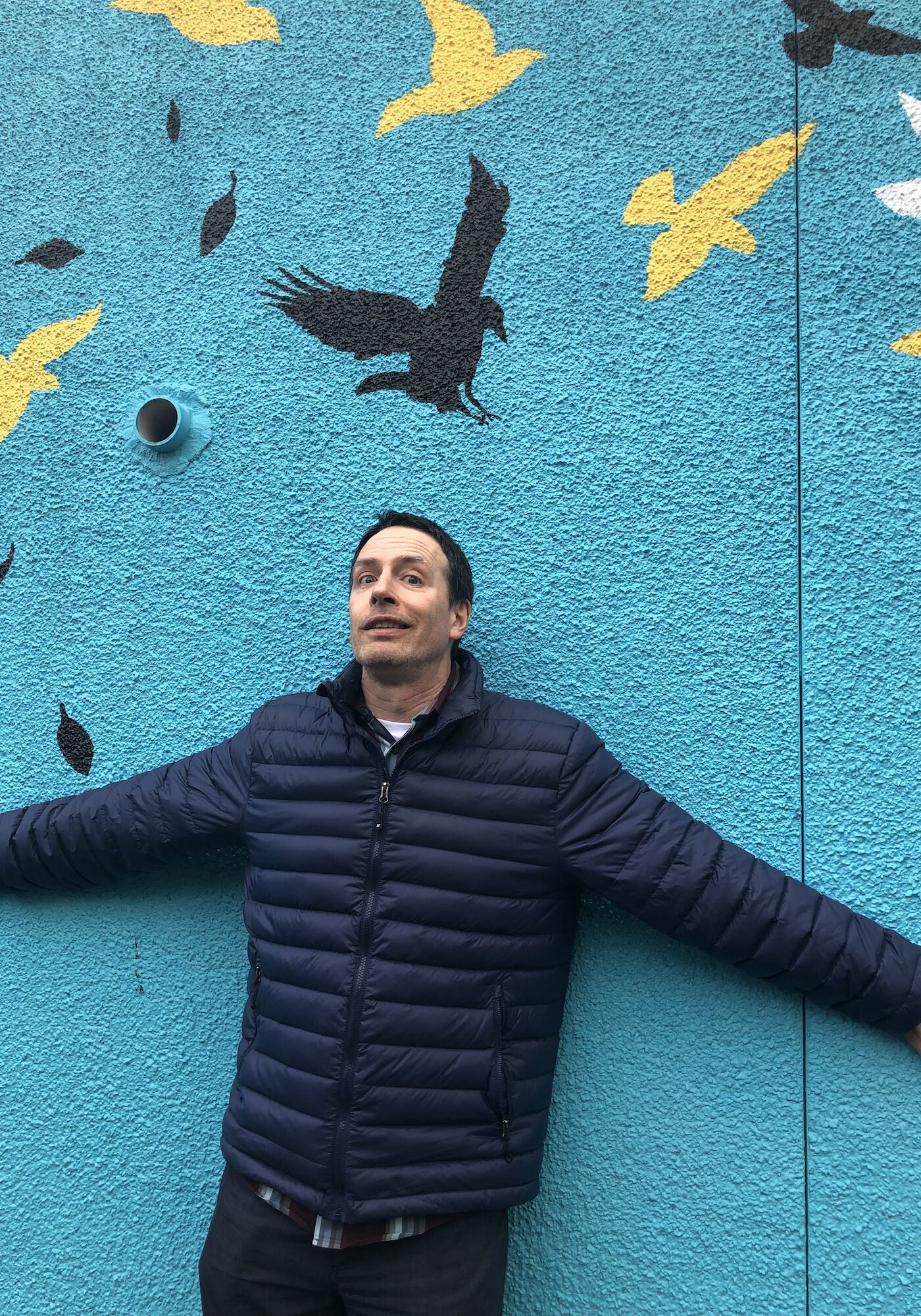With shocking speed, the act of writing unties my mind, sharpening my perceptions because, wherever I go, I’m always noticing: people standing in clusters with hands flexed tight around thin plastic handles; newly hammered façades springing up from yesterday’s soil; dogs slipping leashes, eluding owners, and running like rabbits; birds cycling in the air toward one another; sophisticated code words Sharpied sideways up a cracked brick wall; a pile of wet mail lining the doorway of a nearby house; an empty syringe stabbed into a fencepost around the corner from my apartment.
This might seem meaningless. Who doesn’t notice the world?
For me, it’s different. Seeing something new every day feels valuable, especially when I take the image home and successfully capture it on the page. Like John, the friendly squatter staying in a crumbling house down the street, who says hello when I walk by. Or the explosively loud construction zone between us (six old houses smashed to dust, three towering trees uprooted—all of it bulldozed and carted away by diesels belching black smoke). Or the golden retriever puppy outside the brewery who meets my eye, wagging its yellow tail, straining its leash to greet me with a wet nose and lick my teeth. Or the diligent crow beyond my window at work, perched on the brick balcony, pulling an unlucky snail from its shell.
Sometimes noticing gets me into trouble. Like the time I noticed a short, bearded white man jaywalking with a trash bag over his shoulder last summer. I was waiting for the bus to work. It was seven o’clock in the morning; I was listening to music (The Cure’s Seventeen Seconds). The man noticed me noticing him. Then he reached into his pocket, and he flung a handful of something at me. Rocks? Coins? Shit? I didn’t see it, but it whistled through the trees over my head. Cars honked at the man; frustrated drivers waved. Frowning, he finally finished crossing the street—and thankfully—he walked away. I noticed him flinging the bag over his other shoulder. He grunted. Like the bag was heavy. When the bus finally arrived, I got on, and I wrote about him—what he was wearing: a leathery grimace above a leaky rain jacket, mud- spattered jeans with frayed cuffs, tattered tennis shoes trailing laces. I wrote about the way his shadow seemed to follow reluctantly, and I tried to figure out where he might be headed—toward Northgate? Our exchange lasted—maybe—seventeen seconds. But it stayed with me.
It stayed with me because writing forces me to be present in the world. It forces me to stop scrolling or texting or checking my emails for rejection letters from magazines. Writing every day conditions me to keep writing, every day. And like the beginning of anything I’ve ever written, the words come slowly. Always. But if I don’t get up from my desk, if I can manage to stay away from Twitter or Youtube, I know the words will come. And when they do, they pour out of me. Sometimes I can’t keep them all on the page. They fall to the ground, rolling under my feet, getting caught in the wheels of my chair. A few run away from me. Like dogs. I know pursuing them is pointless. Instead, I search for new words, in hopes of preserving the image hanging precariously from the tip of my mind. Maybe it’s that guy jaywalking at the bus stop. Or maybe it’s the long-haired man eating salad on the bus with a buck knife. Maybe it’s the man behind the man with the buck knife, clipping his fingernails and putting them in the front pocket of his sport coat. Or the woman behind the man clipping his fingernails. She’s holding a compact in one hand, carefully running a mascara brush through her eyelashes with the other as the bus bumps along.
I pull out my phone and open the little word processor. I keep my journal there. Most of the other riders are looking at their phones too. I wonder what they see. I try not to stare.

